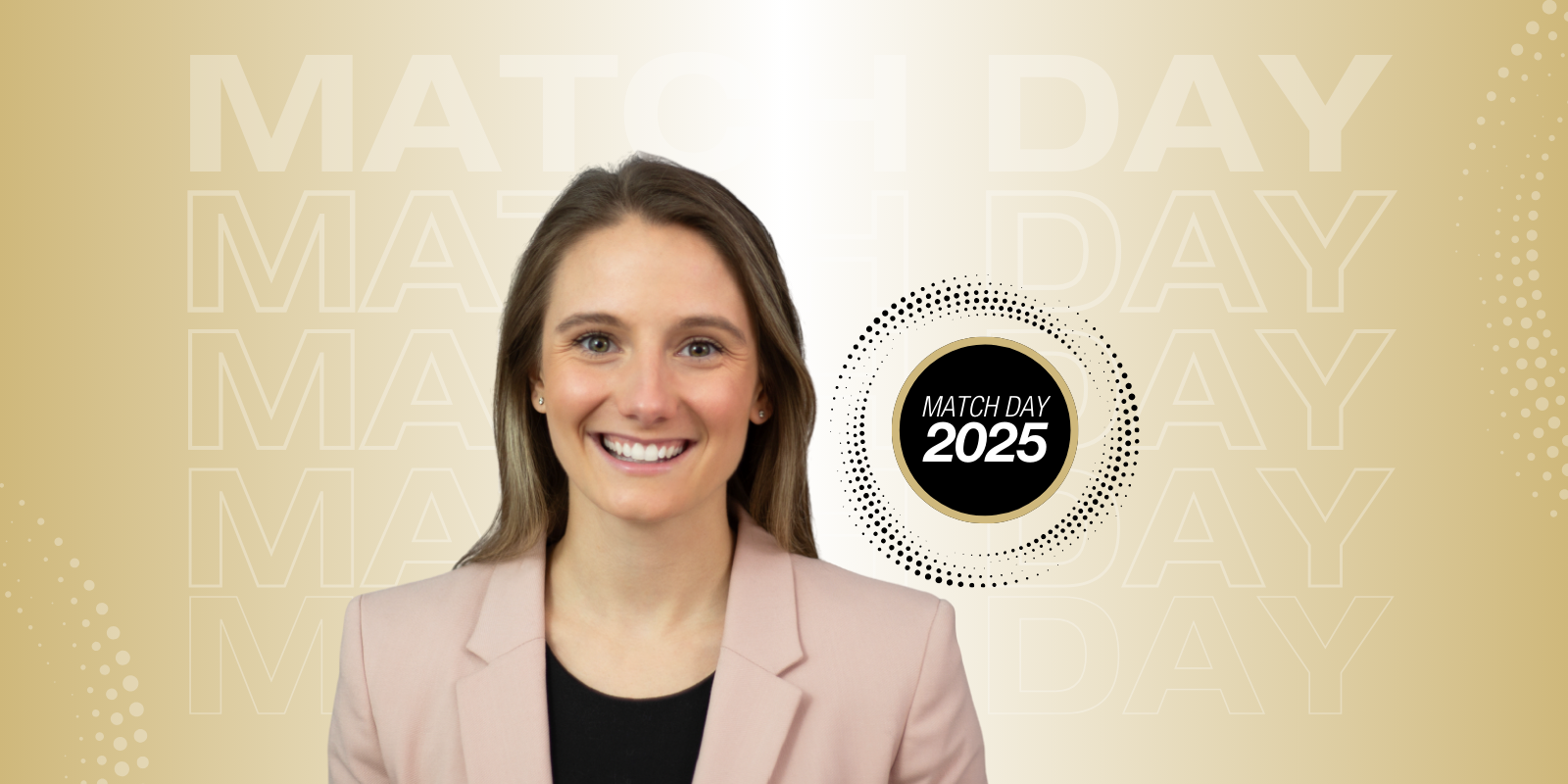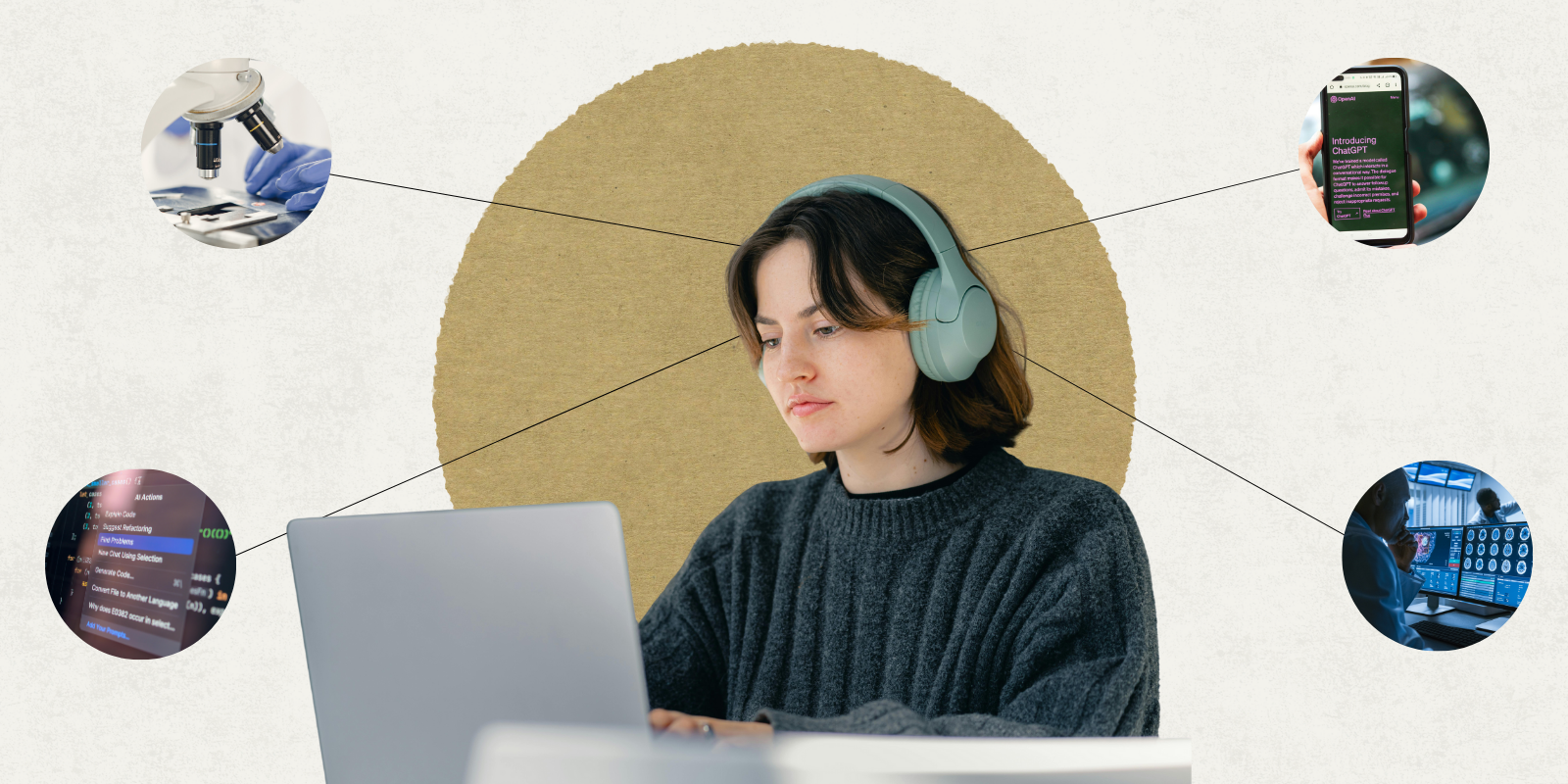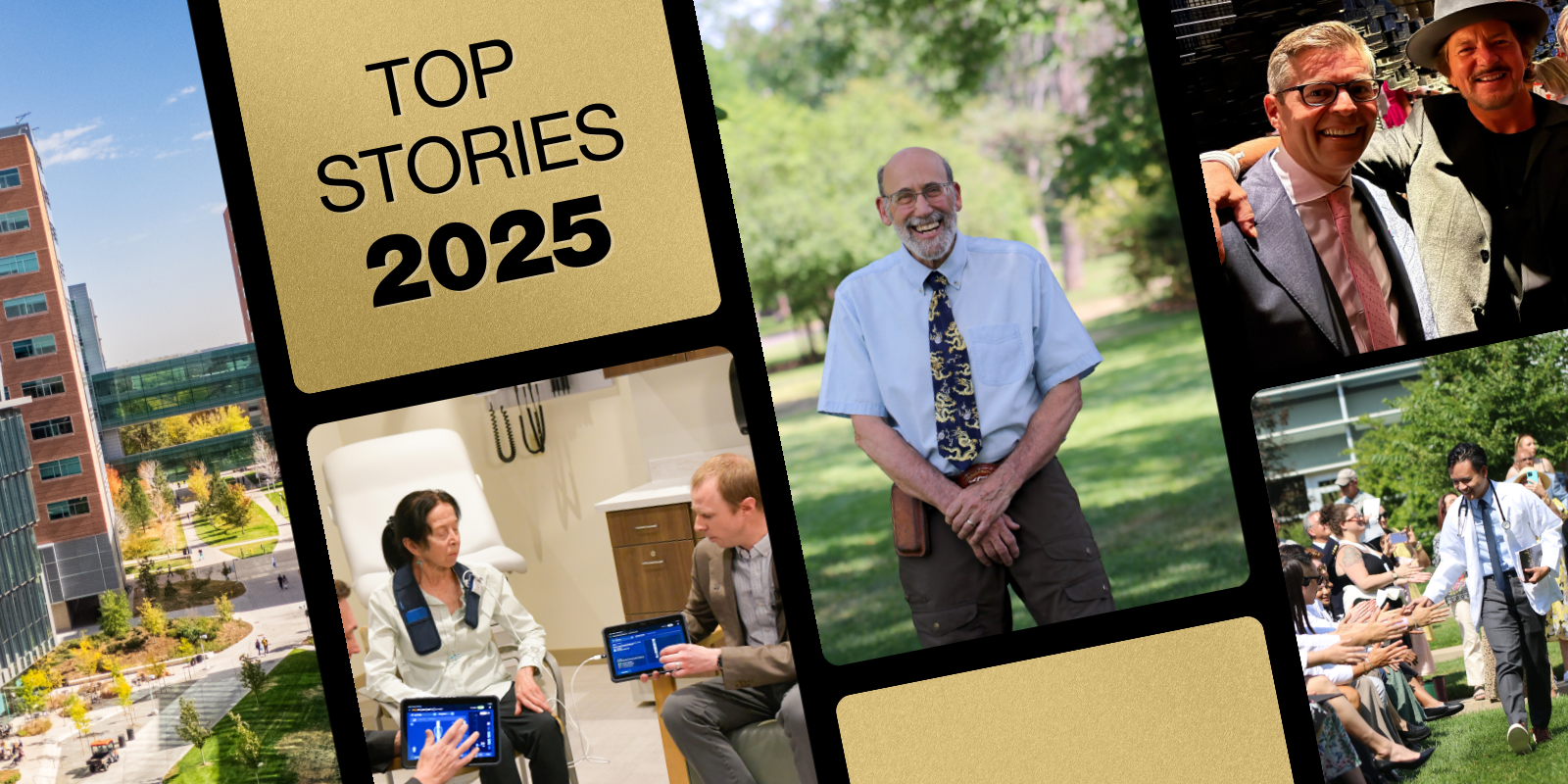When Allison Broad stepped onto the balance beam at 3 years old, it marked the start of her eventually becoming a Division I gymnast. Only years later would she realize it was also the beginning of her journey to medicine. Now, as a fourth-year medical student at the University of Colorado School of Medicine, she’s preparing for her biggest leap yet: Match Day.
Match Day is an annual event where medical students across the country simultaneously learn the residency program they have matched into. This year, when Broad opens her envelope to reveal where she has matched, she hopes to see an emergency medicine training program at a county hospital in Denver or the Bay Area.
“I’m really looking forward to Match Day. It feels a little surreal, but it’s exciting to reflect on my journey and the possibilities of where I could end up for residency,” she says.
Wherever she ends up, she knows it’ll be the next step toward becoming a well-rounded physician who offers personalized care to patients — the type of care her own family has needed.
“I am going to work tirelessly to provide equitable care to patients,” she says. “I’m excited to continue learning how to be a physician who impacts change on a patient level and on a societal level.”

Allison Broad with her partner, Sam Mathai, who aims to become a general surgeon. The pair hope to match into the same residency program, a process often called couples matching. Image courtesy of Broad.
A ‘chance interaction’ that changed everything
As an energetic child growing up on the south side of Chicago, Broad’s parents put her into a variety of sports. Gymnastics, in her words, “is the one that stuck,” leading her to stay in the sport for 18 years. In 2015, when she began studying at the University of Illinois Chicago, she joined the university’s gymnastics team.
“Gymnasts get hurt all the time, so I had a lot of exposure to physical therapy,” she says. “Between high school and college, I tore my ACL and was in physical therapy three times a week for six months. I really liked the relationships I developed with the physical therapists.”
Broad decided to major in kinesiology and exercise science, with the goal of becoming a physical therapist herself — until one conversation changed everything. During her cadaver dissection lab, she told her professor, a physician, that she wanted to become a physical therapist. The professor suggested she consider a career in medicine instead.
“She said she could see me being a physician. That’s one of the moments of my life that I think back on all the time,” Broad says. “If I didn’t have this chance interaction, my life would be so different and I wouldn’t be here, having the privilege to care for people as a future physician.”
After graduating in 2019, Broad took two gap years to study for the Medical College Admissions Test and gain further experience to apply for medical school. She also began working as a medical scribe in the emergency department of a small community hospital on the south side of Chicago.
“It was, to this day, one of the best experiences I had because it allowed me to see the way that physicians interact with patients in a one-on-one setting,” she says. “It also exposed me to caring for patients from underrepresented backgrounds. I learned about the social determinants of health and how someone’s financial status, their race, class, gender — it all influences patient care.”
A second home
Although she spent all her life living in Illinois, Broad and her family enjoyed many vacations in Colorado, skiing and hiking. When it came time to consider medical schools, she knew a benefit of coming to the CU School of Medicine would be the proximity to the mountains — but what really drew her to CU was its reputation of providing patient-centered care.
“I knew I wanted caring for socially vulnerable populations to be a forefront of my career, and I thought that CU had a great setup for me to learn how to provide the best quality care,” she says.
She didn’t get into a medical school after her first time applying, but she didn’t give up, encouraged by her family and friends. Then, in 2020 — a year before getting accepted into the CU School of Medicine — her dad was diagnosed with colorectal cancer. He ultimately passed away during her third year of medical school.
“Caring for patients and families going through really hard times was something I experienced firsthand. I think back to his care team, and they were so patient,” she says. “There was a time where he had a lot of difficulty with word finding because of tumors in his brain, and I vividly remember a physician sitting in the room with him for an hour, just waiting for him to get his words out. Those physicians were role models to me.”

Allison Broad smiles with her dad and brother at the 2021 Chicago Marathon (left image), and she smiles with her dad at the 2022 Chicago Marathon (right image). Despite her dad undergoing chemotherapy at the time, he ran both marathons with her. Images courtesy of Broad.
At the start of medical school, Broad felt scared about the demands she would face over the next four years.
“Medical school has been very challenging, but CU has offered such a supportive community. I’ve really met my people here, both in terms of friends, peers, and mentors,” she says. “I love it here. I have found a home both at CU and in Denver.”
Among the list of her mentors is Vishnu Kulasekaran, MD, an associate professor of general internal medicine who was the director of her Longitudinal Integrated Clerkship (LIC) at Denver Health during her second year of medical school.
“I was so lucky to not only have him as the director but also to have him as my internal medicine preceptor,” Broad says. “I remember walking into his clinic and all his patients were so excited to see him. He was a great role model on how to bring 100% to each patient encounter and to really listen and learn from patients.”
Equally influential was Chelsea Wolf, MD, an assistant professor of psychiatry who was Broad’s COMPASS Guide. When medical students begin at CU, they are each assigned a medical student coach, called a COMPASS Guide, who offers mentorship to the student throughout their schooling.
“Like Vishnu, she is such a fierce advocate for patients and providing equitable care,” Broad says. “I’ve been really lucky to work with people who have affirmed my decision to practice medicine, and it’s helped make me a more confident person. In turn, that’s translated to being able to provide really good care to patients.”

Allison Broad smiles with Vishnu Kulasekaran, MD, and other members of her Denver Health LIC cohort. Image courtesy of Broad.
Harm reduction work
A highlight of Broad’s time at CU has been her involvement in the Harm Reduction Action Center, an organization that aims to educate, empower, and advocate for the health of people who use drugs.
She learned about the center while doing her clerkship at Denver Health. When the executive director of the center, Lisa Raville, gave a talk to CU medical students about the organization and its approach to caring for people with substance use disorders, the message resonated with Broad.
“It’s essentially a safe place for these individuals to get resources, have a community, and learn about issues like communicable diseases,” Broad says. “I got to chat with people and really get a better understanding of them. Every day, you hear stories of barriers that people face. As someone who has the privilege to have not faced those barriers, it’s imperative for health care workers like me to understand on a deeper level what our patients have to do to achieve health and safety in this world.”
Her pursuit of caring for vulnerable and marginalized communities further motivated Broad to also get involved in various firearm injury prevention initiatives at CU, investigating how to best care for people who come into the emergency department with firearm injuries and provide them with safer discharges. Her interest in the issue stemmed from her previous work as a medical scribe in Chicago, where she saw many firearm injuries.
“I always had a feeling that these injuries, especially among communities of color on the south side of Chicago, just didn't get the weight that they deserved in society,” she says. “It was my goal to understand these injuries in these communities and patients better, so that down the line, I hopefully can advocate for safer gun policies and more equitable care in hospitals.”

Allison Broad smiling with her parents during the CU School of Medicine’s White Coat Ceremony. Image courtesy of Broad.
Coming full circle
It was a tough decision to decide on a specialty because Broad loved all the specialties she practiced as a student. Emergency medicine, she found, was the best option because it allows her to care for patients from all demographics.
“I want to ensure all people get the care that they need and deserve. My goal is to work toward providing equitable care for anyone who comes into the emergency department,” she says.
Pursuing emergency medicine brings Broad’s medical career to a full circle, as she reflects on her early experiences working as a scribe in a hospital’s emergency department.
“It’s crazy to look back on, because when I was scribing, I had no medical knowledge and thought these physicians were so awesome. I thought, ‘They’re so smart, I’ll never get there,’” she says. “And now, it feels real — I’m going to step into those shoes in a few months and be tasked with a lot of the tasks that I saw them perform.”
Beyond dedicating herself to her studies, patients, and volunteer and research work, Broad has also prioritized keeping up her hobbies outside of the CU Anschutz Medical Campus, like skiing, biking, and running.
“You don’t have to lose those passions in medical school, and I would argue that maintaining your passions will make you a stronger, more whole individual,” she says. “I think that going into medical school, a lot of people think that if they’re not working all the time, then they’re not being the best student they can be. I challenge that mentality — yes, it’s a lot of hard work and sacrifice, but you’re not growing as much as a person if you’re always cooped up in the library.”



